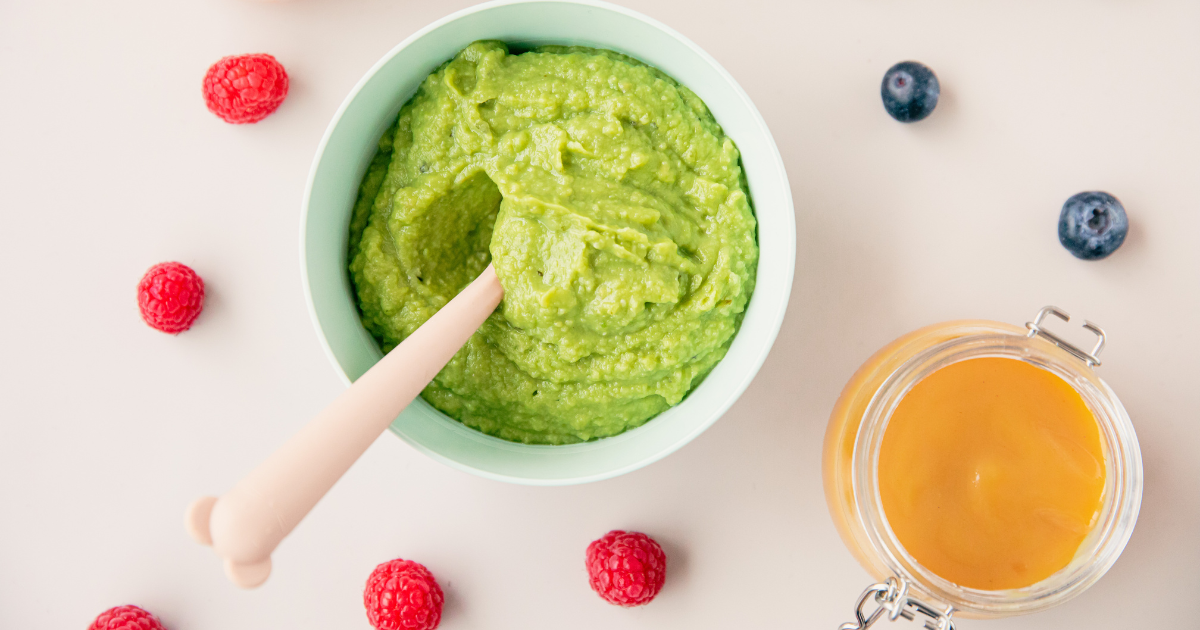Parenthood is a journey filled with countless milestones, from the first heartbeat on an ultrasound to the first steps taken on wobbly legs. Among these cherished moments is the introduction of solid foods to your baby’s diet—a pivotal stage in their growth and development. While store-bought baby food may seem convenient, there’s something truly special about preparing homemade delights for your little one. Let’s delve into the world of homemade baby food and discover the joys and benefits it brings to both you and your precious bundle of joy.
The Magic of Homemade Baby Food
Preparing homemade baby food is more than just a chore; it’s an act of love. When you take the time to select fresh, wholesome ingredients and transform them into nutritious meals for your baby, you’re not only nourishing their growing bodies but also instilling healthy eating habits that will last a lifetime. From vibrant fruits and vegetables to tender meats and grains, the possibilities are endless when it comes to creating homemade baby food.
Why Choose Homemade Baby Food?
- Nutritional Superiority: Homemade baby food allows you to control the quality and quantity of ingredients, ensuring that your little one receives the nutrients they need without any added preservatives or artificial flavors.
- Tailored to Your Baby’s Needs: Every baby is unique, with their own preferences and dietary requirements. By making homemade baby food, you have the flexibility to tailor each meal to suit your baby’s individual tastes and nutritional needs.
- Cost-Effective: Contrary to popular belief, homemade baby food can be more cost-effective than store-bought alternatives, especially when you buy ingredients in bulk or opt for seasonal produce.
- Environmental Benefits: By reducing your reliance on pre-packaged baby food jars and pouches, you’re also minimizing your environmental footprint—a win-win for both your baby and the planet.
Getting Started: Essential Tools and Ingredients
Before you embark on your homemade baby food journey, it’s important to equip yourself with the right tools and ingredients. Here’s what you’ll need:
- Blender or Food Processor: A high-quality blender or food processor is essential for pureeing fruits, vegetables, and meats into smooth and creamy textures that are suitable for your baby’s delicate palate.
- Ice Cube Trays or Silicone Baby Food Trays: These handy tools allow you to portion and freeze homemade baby food in convenient serving sizes, making mealtime a breeze.
- Fresh Produce: Opt for organic fruits and vegetables whenever possible, and be sure to wash them thoroughly before use. Seasonal produce is not only more flavorful but also more budget-friendly.
- Whole Grains and Lean Proteins: Introduce your baby to a variety of whole grains such as rice, quinoa, and oats, as well as lean proteins like chicken, turkey, and tofu, to support their growing bodies.
Homemade Baby Food Recipes to Try
- Sweet Potato and Apple Mash: Steam or roast sweet potatoes until tender, then puree with cooked apples for a deliciously sweet and nutritious treat.
- Avocado Banana Blend: Combine ripe avocado with mashed banana for a creamy and nutrient-rich snack that’s packed with healthy fats and essential vitamins.
- Pea and Spinach Puree: Steam peas and spinach until soft, then blend until smooth for a vibrant green puree that’s bursting with vitamins and minerals.
- Chicken and Vegetable Congee: Cook rice with diced chicken and mixed vegetables until soft and porridge-like, then blend or mash for a comforting and nourishing meal.
Tips for Success
- Start Slow: Introduce new foods one at a time and observe your baby’s reaction before offering additional varieties.
- Texture Matters: As your baby grows and develops, gradually increase the texture of their food to encourage chewing and swallowing skills.
- Be Creative: Don’t be afraid to experiment with different flavor combinations and ingredients to keep mealtime exciting for your little one.
- Safety First: Always follow proper food safety guidelines, including washing hands and utensils thoroughly and storing homemade baby food in the refrigerator or freezer to prevent spoilage.
Conclusion: A Labor of Love
In a world filled with convenience foods and fast-paced lifestyles, homemade baby food offers a refreshing reminder of the simple joys of cooking with love for those we cherish most. By nourishing your little one with wholesome homemade delights, you’re not just feeding their bodies; you’re nurturing their souls and laying the foundation for a lifetime of healthy eating habits. So roll up your sleeves, dust off your blender, and embark on this delicious journey of parenthood—one spoonful at a time.

